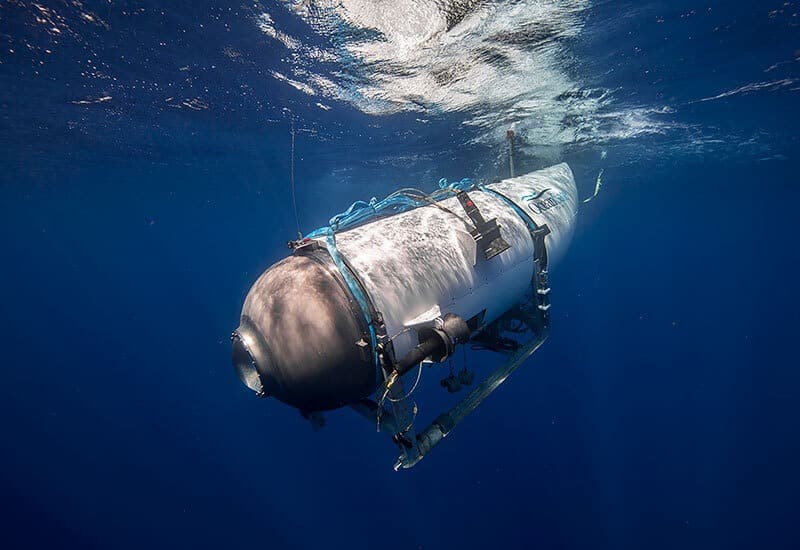New Documentary Reveals Chilling Audio from Titan Sub Tragedy
A new BBC documentary has shed light on the haunting moment when the wife of OceanGate CEO Stockton Rush heard the sound of the Titan submersible’s fatal implosion.

The Titan, a sub operated by OceanGate Expeditions, made global headlines in June 2023 when it vanished during a deep-sea dive to the Titanic wreck site. Onboard were five people: OceanGate CEO Stockton Rush, British billionaire Hamish Harding, Pakistani businessman Shahzada Dawood, his 19-year-old son Suleman, and veteran French diver Paul-Henri Nargeolet.
Roughly 90 minutes into the dive, the sub imploded, instantly killing everyone aboard. But at the time, those on the surface had no idea what had occurred. Contact with Titan was lost, sparking an international search and rescue effort that captured the world’s attention.

In the newly released footage, viewers see Wendy Rush—Stockton Rush’s wife—on the support ship when a sudden, loud bang comes through the radio. Startled, she turns to the crew and asks, “What was that bang?” Unbeknownst to her, the sub had already imploded, and all five passengers were dead.
According to the U.S. Coast Guard, the loud sound occurred just before the crew received a delayed text from Titan saying it had “dropped two weights”—a routine maneuver meant to signal ascent. This message led those onboard the support vessel to believe the dive was going smoothly, when in reality, it was the last communication ever received from the sub.
It took four more days for investigators to locate the debris, found just 1,600 feet from the Titanic wreck.
In the aftermath, serious questions arose about Titan’s design, safety protocols, and OceanGate’s leadership. David Lochridge, OceanGate’s former Director of Marine Operations, had raised red flags long before the tragedy. In an email presented during an inquest, he warned, “I don’t want to be seen as a tattletale but I’m so worried he kills himself and others in the quest to boost his ego.”
Stockton Rush was known for pushing boundaries. “You’re remembered for the rules you break,” he once said. He also claimed, “I’ve broken some rules. I think I’ve broken them with logic and good engineering behind me.”
But that logic has come under scrutiny. According to Futurism, the Titan was potentially unfit for deep-sea use. In a chilling detail reported by The Washington Post, Arnie Weissman, editor-in-chief of Travel Weekly, said he spoke with Rush the night before the fatal dive. Weissman, who was scheduled to be on the expedition but backed out due to a scheduling conflict, recalled that Rush admitted to using discounted carbon fiber purchased from Boeing because it was “past its shelf life for airplanes.”
When Weissman questioned the safety of using expired materials, Rush reportedly brushed off the concern, insisting, “It’s perfectly fine… the carbon fiber was perfectly sound.”
The Titan disaster continues to raise serious concerns about oversight, engineering ethics, and the risks of commercial deep-sea exploration. The new documentary offers an emotional look into the human toll of pushing too far, too fast, in the name of innovation.



